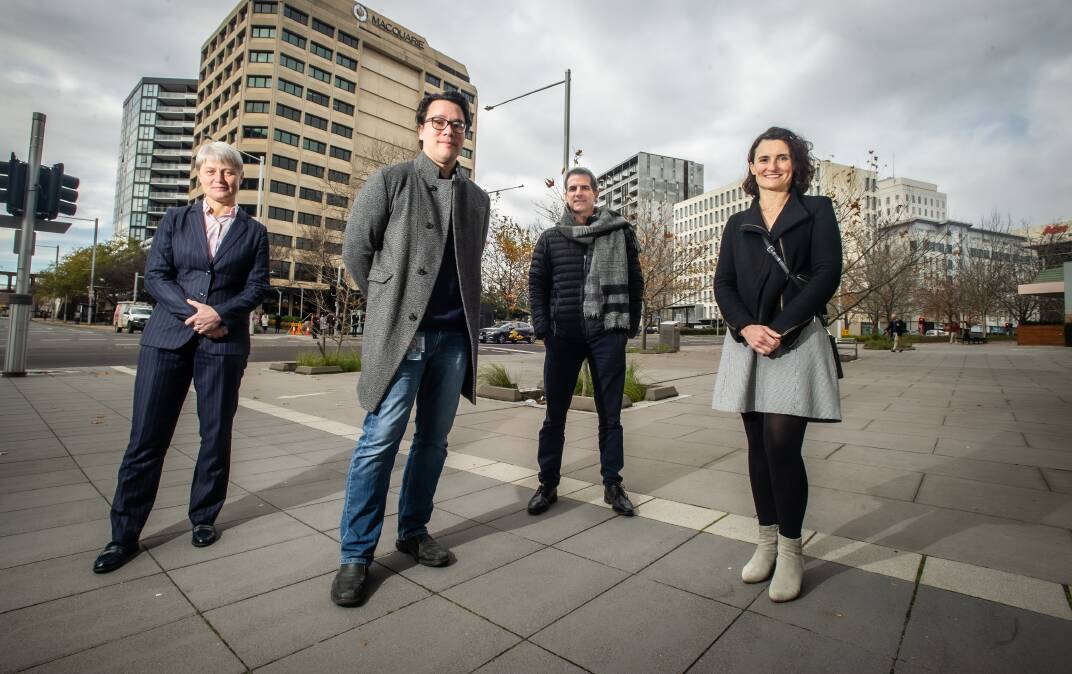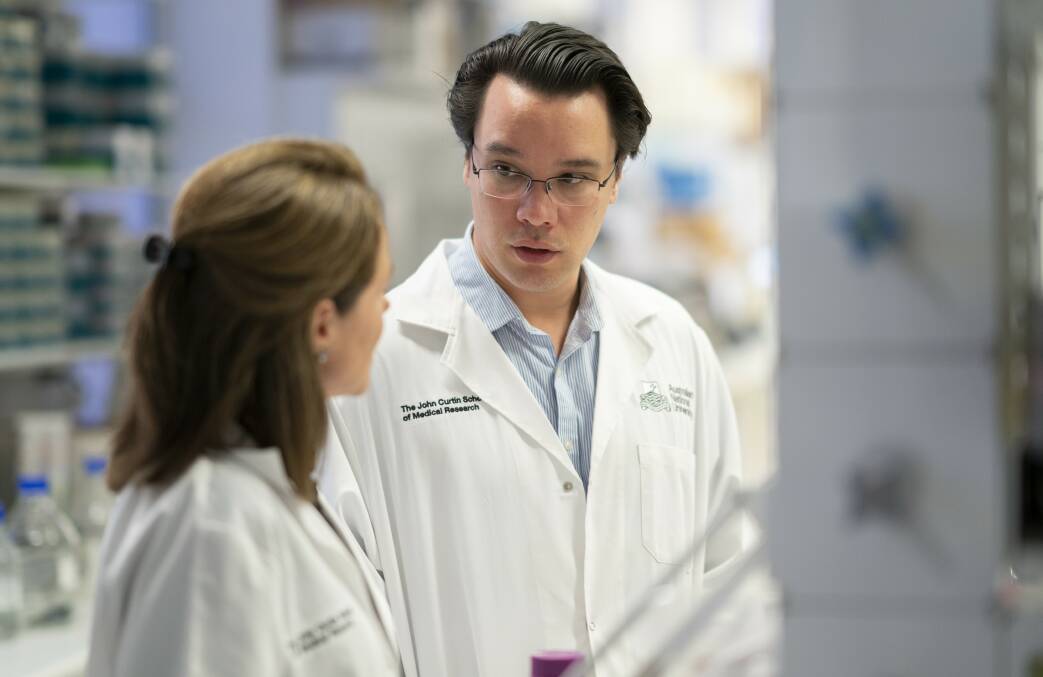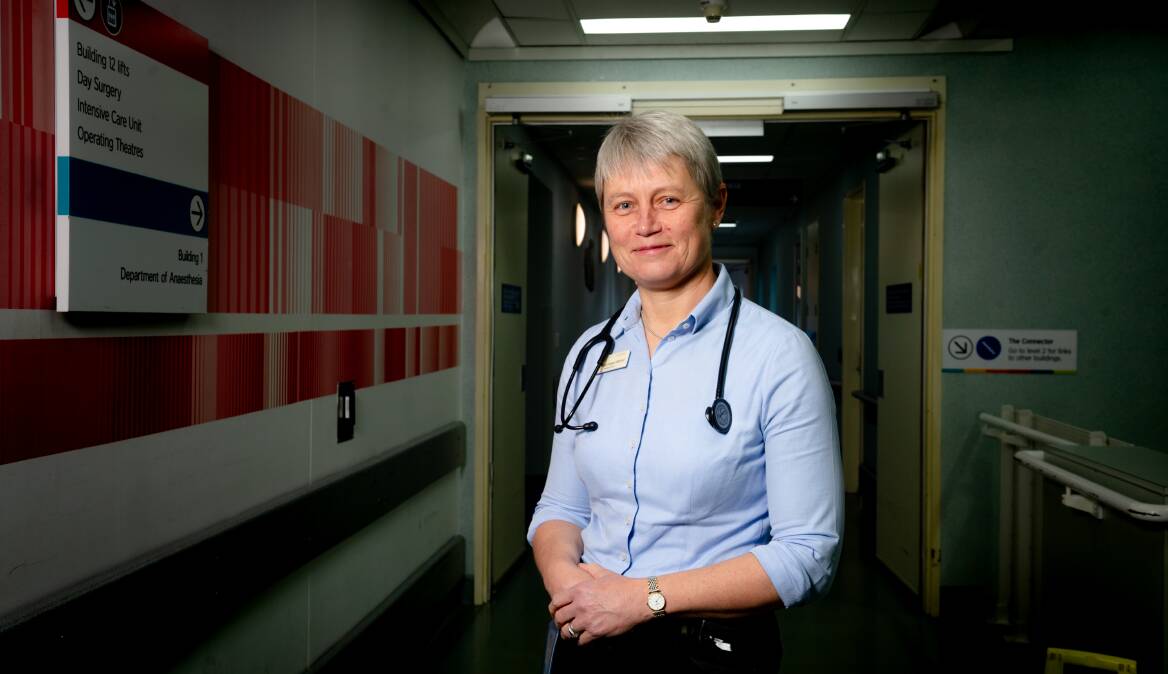
The COVID pandemic may slowly be getting under control - nearly - but other serious illnesses such as heart and kidney disease, diabetes and serious mental illness are surging because they went untreated in the depths of the pandemic, the doctors who treat them say.
The halt to a lot of laboratory work during the lockdowns delayed the diagnosis and treatment of some chronic illnesses (illnesses which are serious but which last a long time).
"We are seeing a surge in the illnesses themselves and the complications of them," Simon Jiang, a kidney doctor at Canberra Hospital and a leader of laboratory research at the Australian National University, said.
"During COVID, lots of research stopped or slowed, and because of the slowdown in research, we've had a slowdown in evidence related to the care of patients," Nick Brown, Professor of Allied Health Research at the University of Canberra said.
Dr Jiang and Professor Brown work in two separate fields, but their work - and the treatment of their patients - was severely impeded by the pandemic.

Dr Jiang works with kidney patients and Professor Brown works with young people who have serious psychotic disorders (mental illness where there is delusion and hallucination). As well as treating patients, both are at the forefront of research.
Dr Jiang often treats kidney patients with a baffling array of symptoms which are hard to diagnose. His and his team's job is to look at genetic clues which might indicate what's wrong - and how to fix it (or stall it).
But laboratory work on mice was halted because lab workers had to stay home during lockdowns.
"All those things that we were using to understand what was going on, we had to just wind them down. That was a big source of frustration because the patients are still unwell," Dr Jiang said.
He can't say that anyone died but he does think that people's illnesses became more serious. "One of the things we really strive to do is prevent people from getting such significant kidney injury that they land on dialysis. There were several patients that landed on dialysis.
"It's very hard to say for sure that I would have been able to stop that from happening but certainly some patients ended up on dialysis who we were trying to prevent from going on dialysis."
On top of this halt in laboratory analysis, patients also stayed away from hospitals and surgeries, so their plight worsened. "We are seeing a surge in the illnesses themselves because people just stayed away, and we are now grappling with a post-COVID surge in chronic disease that hasn't been managed," Dr Jiang said.
Psychotic disorder
Professor Brown works with young people, aged 16 to 25, who have serious psychotic conditions, involving hallucinations and delusion.
"These people die 20 years earlier than the average Australian so it's a very serious health-gap for people with a serious mental illness. I'm not talking about an episode of depressional anxiety: these are very severe psychoses," he said.
A lot of the research and treatment involves meeting them but that was halted. "We weren't allowing our PhD students and our researchers to get in front of patients because there was too high a risk around that, so a lot of research slowed or stopped dramatically," he said.
"All of that research had to stop, and all of that intervention not only slowed but was not available to a group of young Canberrans who could have directly benefitted from that intervention."
Ongoing pandemic pressure
There is also continuing pressure on the health system itself. Canberra Hospital emergency department has been under "extreme pressure", with people with non-life threatening injuries urged to go elsewhere.
"Our hospitals are currently experiencing bed block every day with a large number of patients requiring longer hospital stays," Cathie O'Neill, Canberra Health Services chief operating officer, said.
The pandemic has, though, given greater weight to Canberra Health Services' ambitious plan to invest in research. In the past, the over-riding focus was on treating patients, but now resources are also going into broader research, with a plan mapped out at least for the next three years, with the aim of being "a leading specialist provider".

The pandemic underlined the need for the expansion, according to Professor Imogen Mitchell who is a doctor in intensive care at Canberra Hospital but also the Clinical Director of ACT COVID-19 Response, and so in charge of the medical response to COVID. She is keen to ramp up the medical research done in Canberra so that it has an international reputation.
"It is evident that embedding a strong research culture will require many pieces of a jigsaw puzzle to come together,' she said, "including academic partners and fiscal support from a variety of stakeholders.
"Although the journey is likely to be long, the critical step has been taken: the launch of the research strategy, with the support of the hospital executive."
The pressure continues - but at least it's not like it was in 2020 when the pandemic broke over the system.
"It felt that we had no control. It felt that we needed to do something quickly for our patients. When there were staff shortages, people did double shifts and overtime," nurse Biljana Zeljkovic said.
She's what's called an "advance practice nurse". In the depths of the pandemic, she was juggling home life around a long working day. "I've got a 10 year difference between my children so my eldest was able to look after my youngest."
So when might the pandemic just be a bad memory?
"We will be seeing the after effects of COVID itself - long COVID - and also the impact of not seeking care during the time that we shut people out.
"So it think there is going to be a significant impact for a long time to come," Professor Mitchell said.
We've made it a whole lot easier for you to have your say. Our new comment platform requires only one log-in to access articles and to join the discussion on The Canberra Times website. Find out how to register so you can enjoy civil, friendly and engaging discussions. See our moderation policy here.







